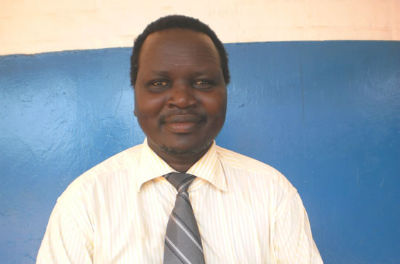 By Dr. John Yien Tut
By Dr. John Yien Tut
July 6, 2013 (SSNA) — The Republic of South Sudan, which attained independence two years ago ranked “approximately fourth” as a failed state behind Sudan. This is according to the US-based organization, “the Fund for Peace”. The report gave the following reasons: South Sudan “fragile” infrastructure, severe poverty, weak government, loss of control of its territory, an inability to provide public services, inability to protect its civilians, fraught relations with Sudan and heavy reliance on oil revenues. In addition to that, South Sudan faces some of the worst health and education indicators worldwide.
However, South Sudan’s rampant insecurity has forced the Government to spend its resources combating threats instead of promoting overall growth and developments. The president has done a lot but there are two options he must choose from, either dismiss the corrupt senior officials and implement the federal system with new faces, or dissolve the whole government and form transitional government which will prepare the South Sudanese citizens for the next elections. The author predicts that the elections might not take place in 2015, but instead be postponed until 2020 given that the SPLM convention will only take place next year, population census is going to take place in two years and finally the elections will be carried out in 2020. The excuse for the delay will be lack of funding.
The government should increase the number of States from 10 to 20 in order to reduce the pressures on the government and to increase the participation and inclusiveness of all 64 ethnic societies. The Republic of South Sudan should improve social and economic indicators, paired with very good provision of public services, respect for human rights, state legitimacy, rule of law and open societies with strong state institutions based on democracy, and enact large-scale reforms. Despite the large volume of aid that has flowed into Republic of South Sudan since independence, it has been unable to effectively utilize those resources towards actual capacity building, developments, social services but "corruption is becoming pandemic in our country, with an estimated US$4 billion of public funds having been stolen or unaccounted for.” It is unfair to suspend only two ministers while leaving untouched the alleged 75 corrupt senior officials of whom over 90% are the current sitting ministers.
The author wants to clarify the word Federalism to the public and why it is necessary for the Republic of South Sudan?
Federalism is a conflict management tool in multicultural society, the case of South Sudan with 64 ethnic societies.
There are challenges in multicultural states such as power sharing, balance of power and resource sharing, resolving the problems of minorities against majority rule and protection of human rights and rule of law. Those factors help in transformation of the state to real legitimacy and democracy. Federalism functions well when decentralization is implemented because the word decentralization means that the transfer of powers, functions and resources from the central Government to sub-national levels, thus enabling officials and institutions below the national level to make decisions and manage public functions efficiently. Decentralization is prompted by a wide range of factors as the quest for effectiveness, participation, stability, efficient planning and the generating of resources by sharing the burden to carrying out activities and shouldering responsibilities. Central government should either relinquish certain functions or create new units of government that are outside its direct control.
These local units of the government must be autonomous, independent and clearly perceived as separate levels of government over which central authorities exercise little power or have clear legally recognized territorial boundaries within which they exercise authority and perform public functions and delivering services to the local population.
The government should implement the fundamental principles for good governance which include:
- Political openness
- Participation and inclusiveness
- Equality and non-discrimination
- Effective and efficient institutions
- Respect for the rule of law and human rights
- Transparency and accountability
We need federal system where all regions will be autonomous and run their affairs, leaving matters concerning defense, currency, customs, foreign affairs and the Court of Appeal to be the responsibility of the Central government of the Republic of South Sudan which will have representatives elected by the people from the states. The system will ensure equal representation of the states and thus tribal groups with their diverse languages, dialects, and cultures will be accommodated and contributing to the emergence of a harmonious society because we will all be members of the same family. Should the government ignore the implementation of the above conditions; the Republic of South Sudan will remain a failed state until a new government is elected in 2020!
The author is a PhD holder in international relations specializing in international negotiation and policy making, from Graduate Institute in Geneva, Switzerland. He also did postgraduate studies in Federalism, Constitutionalism and Democratic Governance in Multi-cultural society at Institute of Federalism, University of Fribourg, Switzerland. He can be reached at: [email protected]

